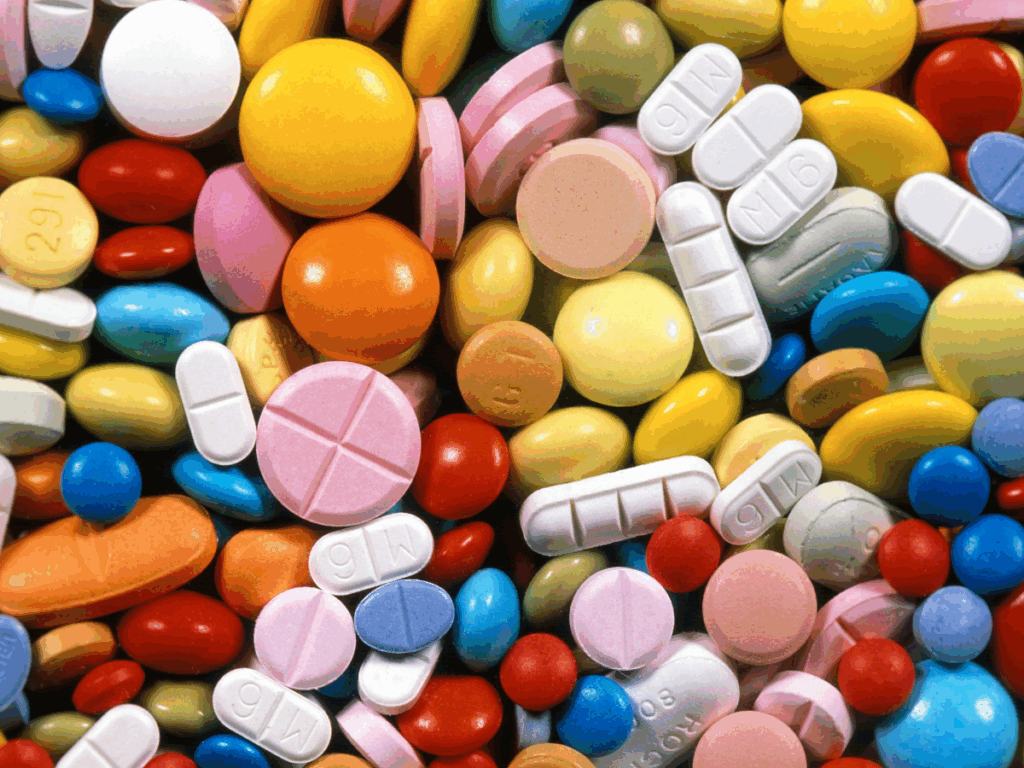
From Euphoria to Dependence: A Closer Look at MDMA
When ecstasy transforms from an occasional experience into something that controls your life or the life of someone you love, it’s natural to feel overwhelmed. You’re not alone in this struggle. With approximately 8.2 million individuals in the United States reporting use of hallucinogenic substances like ecstasy, addiction to this drug affects countless families and communities. At Legacy Healing Center, we offer compassionate, evidence-based support to help you navigate this journey. The path forward may feel uncertain, but recovery is not just possible; it’s within reach.
What Is Ecstasy?
Ecstasy, scientifically known as MDMA (3,4-methylenedioxymethamphetamine), is a synthetic drug that combines stimulant and hallucinogenic properties. Often called “molly,” “E,” or “X,” ecstasy typically appears as colorful pills or white powder and has become synonymous with party and club culture since gaining popularity in the 1980s.
Originally developed in 1912 and later studied for potential therapeutic uses, MDMA today exists primarily in illegal markets. While researchers continue exploring its controlled medical applications, most ecstasy use occurs recreationally, where unregulated production creates additional risks through unknown additives and varying potency levels.
Why Is Ecstasy So Addictive?
Ecstasy’s addictive potential lies in its profound impact on the brain’s reward system. The drug floods the brain with three key neurotransmitters: serotonin (governing mood and emotions), dopamine (linked to pleasure and motivation), and norepinephrine (controlling energy and alertness). This chemical surge creates intense feelings of happiness, emotional connection, and heightened sensory experiences.
Over time, the brain adapts to these artificial highs, requiring larger doses to achieve the same effects, a phenomenon that leads to tolerance. As natural neurotransmitter production declines, users may find themselves relying on ecstasy for emotional regulation and social connection. The psychological dependence often develops alongside physical changes, creating a cycle where stopping use becomes increasingly difficult without professional support.
Signs and Symptoms of Ecstasy Addiction
Recognizing molly addiction early can make a significant difference in recovery outcomes. Warning signs often develop gradually and may include:
Physical and Behavioral Changes:
- Increasing frequency of use despite negative consequences
- Preoccupation with obtaining and using the drug
- Neglecting responsibilities at work, school, or home
- Social withdrawal from family and longtime friends
- Engaging in risky behaviors while under the influence
- Persistent mood disorders when not using
Emotional and Cognitive Symptoms:
- Depression, anxiety, or emotional instability between uses
- Memory problems and difficulty concentrating
- Cravings that interfere with daily activities
- Continued use despite awareness of physical or mental health problems
For loved ones, these changes may manifest as personality shifts, secretive behavior, or a decline in performance in important life areas.
How Ecstasy Affects the Mind and Body
Understanding the effects of ecstasy use is essential to recognizing how this drug can impact both the mind and body over time.
Short-Term Effects
During use, ecstasy can produce euphoria, enhanced empathy, increased energy, and altered sensory perception. However, these desired effects come with immediate risks, including dehydration, hyperthermia, rapid heartbeat, and impaired judgment. Users may engage in dangerous activities or make decisions they wouldn’t normally consider.
Long-Term Health Risks
Chronic ecstasy use can lead to lasting neurochemical changes, particularly affecting serotonin function. This may result in persistent depression, anxiety, memory impairment, and sleep disturbances. Physical health consequences can include cardiovascular strain, dental problems, and compromised immune function. Social and occupational functioning often deteriorates as addiction progresses.
Overdose Dangers
Ecstasy overdose can be life-threatening, particularly when combined with alcohol or other substances. Warning signs include severe hyperthermia, rapid or irregular heartbeat, high blood pressure, seizures, and loss of consciousness. If someone exhibits these symptoms, immediate emergency medical attention is critical.
Ecstasy Withdrawal and Treatment Programs
While ecstasy withdrawal is typically not life-threatening, it can be emotionally challenging. Common symptoms include fatigue, depression, anxiety, irritability, and intense cravings. These effects occur as the brain works to restore its natural chemical balance.
Medical supervision during detox ensures safety and comfort through this vulnerable period. At Legacy Healing Center, our compassionate medical team provides 24/7 monitoring, emotional support, and, when appropriate, medications to ease withdrawal symptoms. This foundation of stabilization prepares individuals for the therapeutic work ahead.
How Legacy Healing Treats Ecstasy Addiction
Our approach to ecstasy addiction treatment combines evidence-based therapies with holistic healing in an environment of quiet dignity and respect. We understand that each person’s journey is unique, which is why we offer personalized treatment plans across multiple levels of care—from medical detox through residential treatment, partial hospitalization, intensive outpatient programs, and ongoing aftercare.
Our comprehensive treatment includes cognitive-behavioral therapy, group counseling, family therapy, and innovative approaches like mindfulness meditation and holistic wellness practices. We also address co-occurring mental health conditions, recognizing that sustainable recovery often requires treating the whole person, not just the addiction.
Throughout treatment, our experienced team provides the clinical expertise and emotional support necessary to help you rebuild not just sobriety, but a meaningful, fulfilling life.
Helping a Loved One with Ecstasy Addiction
Supporting someone struggling with addiction requires balancing compassion with healthy boundaries. Approach conversations with empathy rather than judgment, choosing moments when they’re sober and you can speak privately. Express specific concerns about behaviors you’ve observed rather than making accusations about their character.
Avoid enabling by not providing money, covering consequences, or making excuses for their behavior. Instead, research treatment options so you can offer concrete help when they’re ready. Consider consulting with addiction professionals about intervention strategies if direct conversations aren’t effective.
Remember that you cannot force someone into recovery, but you can create an environment where seeking help feels safe and supported.
Take the First Step Toward Recovery
If you recognize yourself or someone you love in these descriptions, know that seeking help demonstrates strength, not weakness. Addiction is a medical condition, not a moral failing, and effective treatment is available.
Recovery from ecstasy addiction is entirely possible with proper support. Many individuals who once felt trapped by their addiction have gone on to rebuild meaningful relationships, pursue their goals, and find joy in sobriety. Your story of recovery can begin today.
At Legacy Healing Center, we’re here to guide you through every step of this journey with the expertise, compassion, and dignity you deserve. Call us at (888) 534-2295 to speak with a member of our admissions team. Your future is waiting, and we’re honored to help you reclaim it.
Immediate Help and Support
Whether you’re ready to start now or simply exploring your options, these trusted resources are here for you:
- Legacy Healing Center: Call (888) 534-2295 to speak confidentially with a detox specialist.
- SAMHSA National Helpline: 1-800-662-HELP (4357) – Free, confidential support available 24/7 for individuals and families facing substance use disorders.
- 988 Suicide & Crisis Lifeline: Dial 988 from any phone for immediate assistance in a mental health or substance-related crisis.
You’re not alone—support is just one step away.


 Written By:
Written By: Edited By:
Edited By: Clinically Reviewed By:
Clinically Reviewed By: 




 Verify Insurance
Verify Insurance